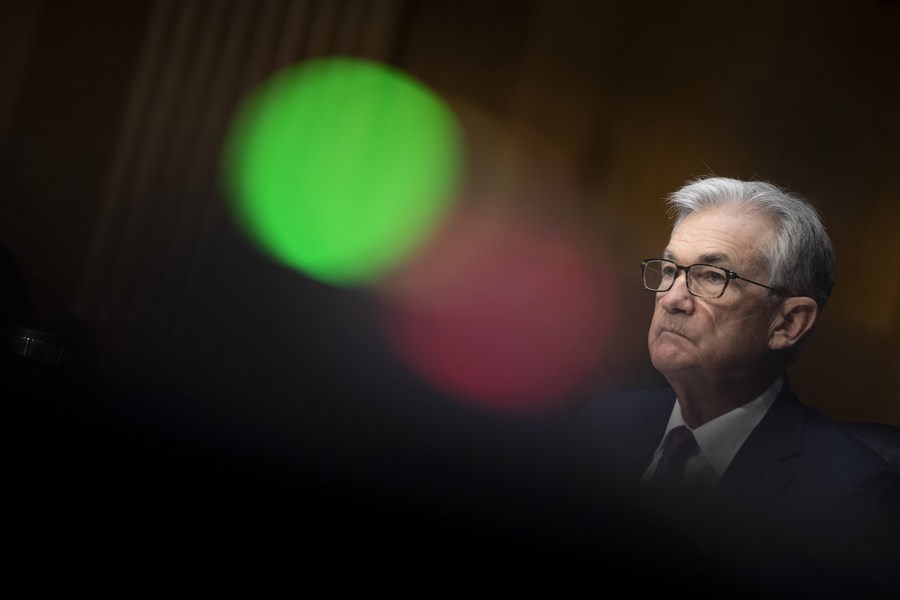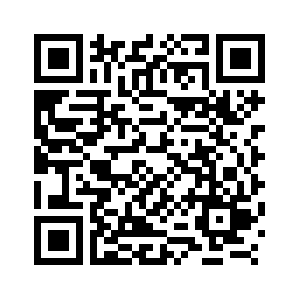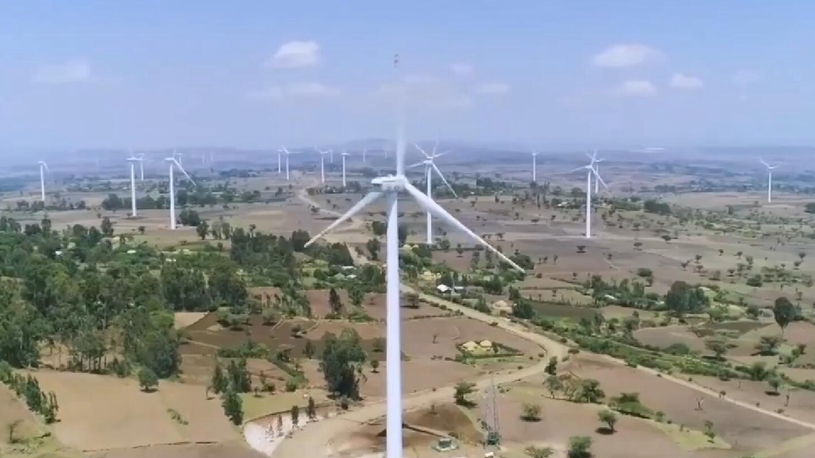
Visitors shop around at the 2022 Houston Livestock Show and Rodeo in Houston, Texas, the United States, on Feb. 28, 2022. (Xinhua/Xu Jianmei)
There's no historical experience that suggests with such high inflation, the Federal Reserve is able to bring inflation down to its 2-percent goal without a recession, former U.S. Treasury official Gary Hufbauer said.
by Xinhua writer Xiong Maoling
WASHINGTON, April 28 (Xinhua) -- The U.S. economy shrank at an annual rate of 1.4 percent in the first quarter this year amid the Omicron surge and elevated inflation, raising the fear of a looming recession.
The latest data marks the economy's first contraction since the COVID-19 pandemic forced the economy to contract sharply in early 2020.
"We're gonna have a recession. Nothing is certain in economic life, but that's pretty certain," Gary Hufbauer, a former U.S. Treasury official and nonresident senior fellow at the Peterson Institute for International Economics, told Xinhua.
Hufbauer noted that there's no historical experience that suggests with such high inflation, the Federal Reserve is able to bring inflation down to its 2-percent goal without a recession.
The March consumer price index surged 8.5 percent from a year earlier, the largest 12-month increase since the period ending December 1981, according to data from the Labor Department. That compared with a 7.9 percent year-on-year gain in February.
Since the March policy meeting, a flurry of comments from U.S. Federal Reserve officials indicated that the urgency for rate hikes is growing, and the central bank is prepared to take more aggressive actions going forward.

A consumer selects food at a supermarket in Millbrae, the United States, March 10, 2022. (Photo by Li Jianguo/Xinhua)
Desmond Lachman, senior fellow at the American Enterprise Institute and a former official at the International Monetary Fund (IMF), also highlighted the possibility of an economic recession, arguing that another reason for pessimism has been the recent inversion in the yield curve.
"The 2-year government bond yield has unusually exceeded the 10-year bond yield. In the past, such bond yield inversions have very accurately forecast the onset of a recession within six to twenty-four months," Lachman told Xinhua.
"Perhaps even more troubling is the likelihood that Fed policy tightening could burst our current equity and housing market bubbles," Lachman added.
Analysts often refer to recessions as two consecutive quarters of contraction in gross domestic product (GDP). Some economists, meanwhile, have struck a more optimistic tone, saying that some weakening is being overstated by the headline GDP figure.
"Net exports robbed the GDP bank in the first quarter, slicing 3.2 percentage points off of the headline growth rate, inventories and government spending cuts took another 0.8 points and 0.5 points, respectively," Tim Quinlan, senior economist at Wells Fargo Securities, wrote in an analysis.
"Those effects swamped what was actually a decent quarter for business and consumer spending and put the headline number underwater with a contraction of 1.4 percent," said Quinlan.
Echoing his view, Diane Swonk, chief economist at major accounting firm Grant Thornton, noted in a blog that "the weakness in the first quarter was more reflective of weakness abroad than weakness at home."
Swonk, however, noted that the challenge will be for the Fed to cool domestic demand without sending too much of a chill through the labor market. "Getting policy 'just right' is no easy feat," she said.

U.S. Federal Reserve Chair Jerome Powell testifies at a confirmation hearing before the Senate Banking Committee in Washington, D.C., the United States, on Jan. 11, 2022. (Brendan Smialowski/Pool via Xinhua)
Even Fed Chairman Jerome Powell, who argued that soft, or at least softish landings have been relatively common in the U.S. monetary history, noted that no one expects that bringing about a soft landing will be straightforward or easy in the current context.
"It's going to be very challenging," Powell said.
Deutsche Bank economists wrote in a report to clients earlier this week that "we will get a major recession," becoming the first major bank to forecast a U.S. recession, according to a report by CNN.
The bank argued that it will take a long time before inflation gets back down to the Fed's target, which means the central bank will raise interest rates so aggressively that it hurts the economy.
Hufbauer said the only question is when the recession really starts.
"Most people are saying that next quarter will be positive, so you won't have two quarters in a row," he said. "But I think by the end of this year, say in the fourth quarter of 2022, in the first quarter of 2023, a recession is very likely." ■












